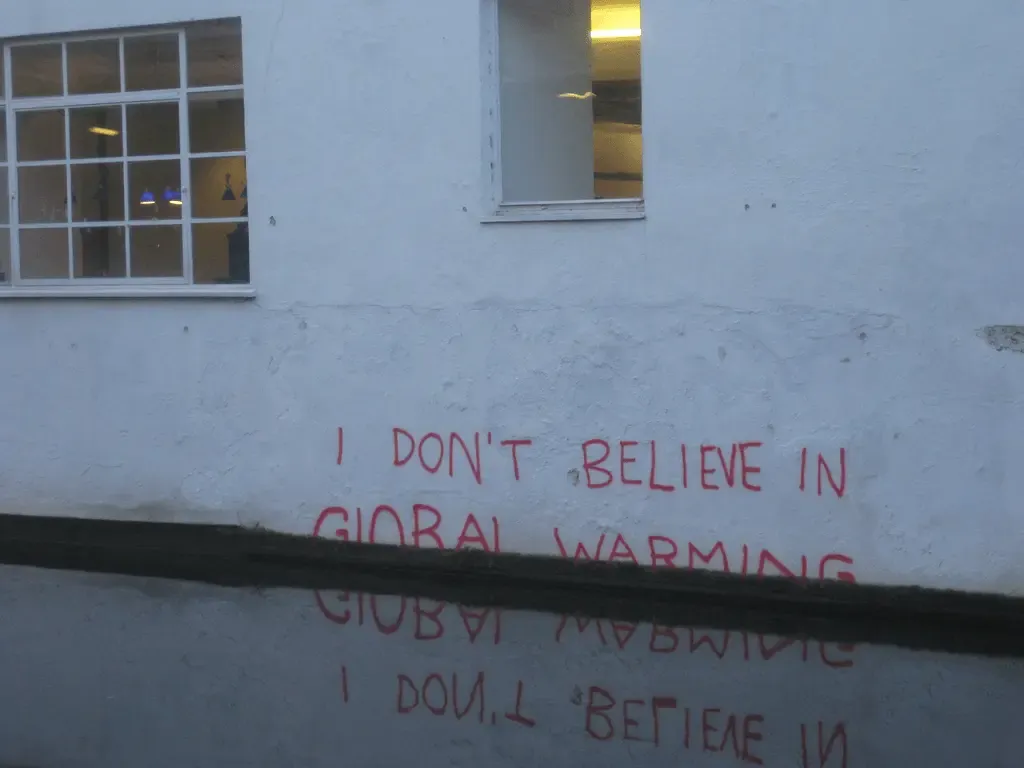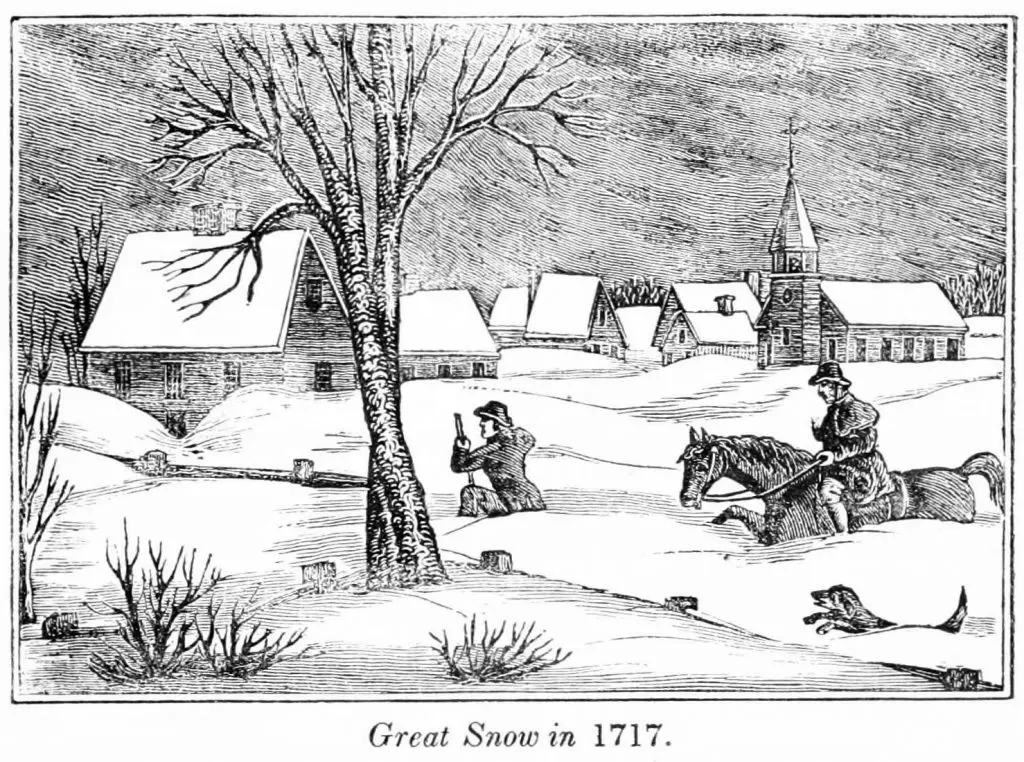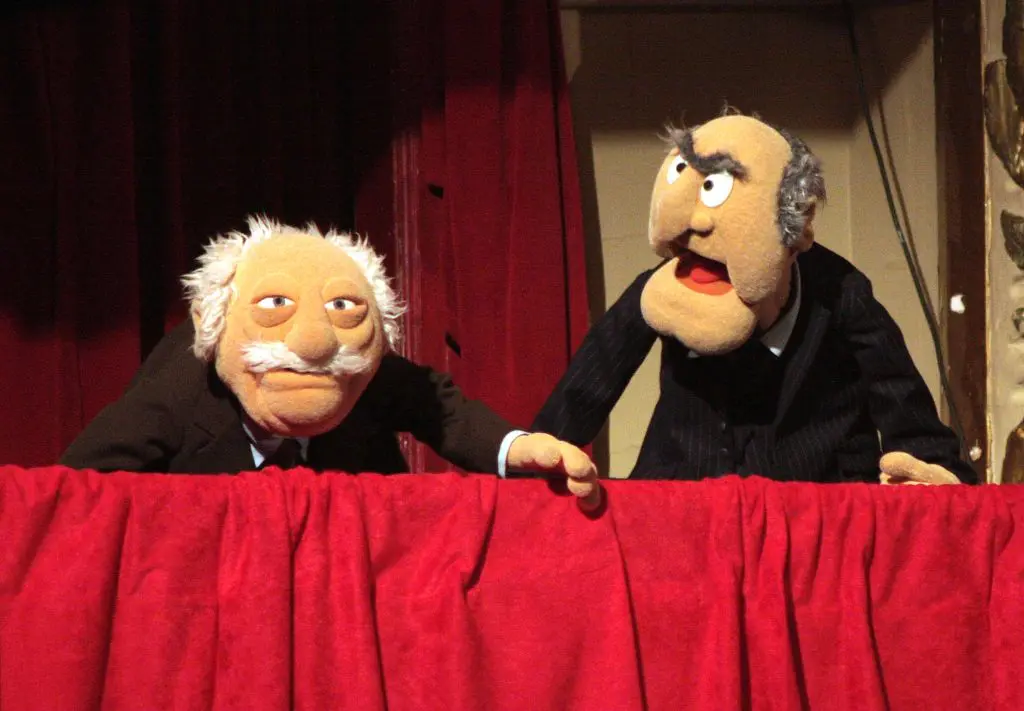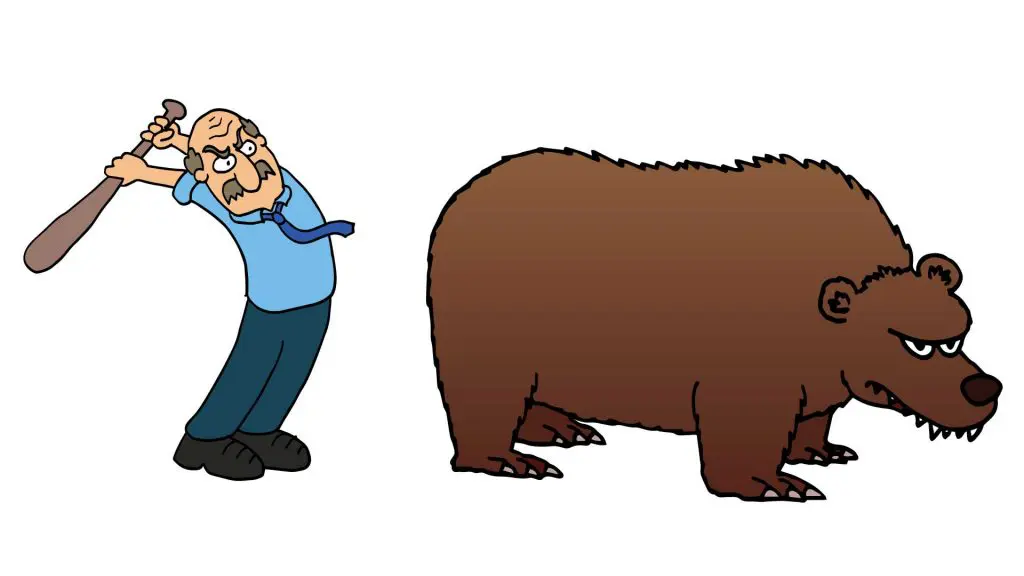Advice for Thanksgiving 2024: How to deal with the climate change-denier at the table

How can you talk to Uncle Pete without spoiling the holiday or stressing yourself out? The key is to understand and respond to his genuine worries. Image courtesy of Shutterstock.

Editor's Note—Due to popular interest, we’re revisiting a climate scientist's tips on dealing with one of the most challenging aspects of Thanksgiving celebrations: navigating conversations with a staunch climate change skeptic who references misleading information from talk radio and social media. This opinion piece is based on a talk given at the 2018 annual dinner of the Bulletin of the Atomic Scientists and is especially timely now.
"People with similar views tend to group together," so I believe that almost everyone reading this piece agrees with the key conclusions of climate science. However, there are still many who don't, as they hold onto various misconceptions about climate change.
These arguments suggest that the planet isn't actually getting warmer, or that if it is, the changes happen naturally and aren't due to human activities. Others might say that volcanoes emit more carbon dioxide than people do. I understand that none of you actually believe these misconceptions; however, it seems like almost everyone has that one annoying relative—let’s say Uncle Pete—who shows up for dinner. Pete changes the atmosphere by repeating these untrue statements he picked up from talk radio or online sources.
In just a moment, I'll explain why many of the claims that get repeated over and over are simply incorrect. While I can't address them all here, I highly suggest checking out the website skepticalscience.com for a comprehensive overview. It features a collection of popular climate myths and explains why they are misguided. This resource can help you effectively counter any arguments from your Uncle Pete.
Let’s address the misconception that the warming we've seen in the past few decades is a result of natural processes rather than human activity. While it's true that the climate has naturally fluctuated over time, such as during ice ages, those natural factors alone don't account for the current warming trend. How can we be sure? It's somewhat similar to understanding the causes of wildfires, which can start naturally, like from lightning strikes. However, they can also be triggered by human actions, whether through negligence or intentional acts. Experts in wildfire investigations can analyze the situation after a fire occurs and determine its origin. They possess the skills to conduct this investigative work effectively.
As climate scientists, we act like detectives in our quest for understanding. We’ve figured out what triggers the ice ages, and it's linked to gradual shifts in the Earth's orbit around the sun. These shifts influence how sunlight reaches different parts of the Earth throughout the seasons. Over tens of thousands of years, these changes can significantly contribute to the rise and fall of ice ages. However, in shorter time frames, such as a few decades, these orbital variations are too minimal to explain the significant warming we've seen in recent times.

Through this type of research, we have effectively eliminated all other natural factors known to influence the climate. For instance, the sun is the driving force behind the entire climate system, and its energy output does fluctuate. However, we can measure this energy very precisely, and we have demonstrated that these fluctuations are far too minimal to account for the warming we have observed. Additionally, the assertion that the carbon dioxide released by human activities is insignificant compared to emissions from volcanoes does not hold up under scrutiny. Data indicates that human actions, primarily the burning of coal, oil, and natural gas, produce approximately 100 times more carbon dioxide than volcanic activity.
By burning fossil fuels, we've taken on the responsibility of shaping the climate for the years to come. Instead of being mere bystanders in the unfolding drama of global climate change, we've become the key players. Scientific research offers strong proof that the greenhouse gases released from our activities are primarily responsible for the warming seen in recent decades. This understanding of climate change is well-established, tracing back to critical laboratory experiments conducted in the 1850s. These experiments demonstrated that gases like carbon dioxide, though present in slight amounts in the atmosphere, can significantly trap heat. Over the past few decades, we've observed warming patterns—how temperatures change with altitude, location, and seasons—that align perfectly with what we would expect from increasing greenhouse gases in the atmosphere. We’ve discovered the true source of the problem: it’s us.
There are effective counterarguments for all the prevalent climate myths as well. This is why numerous studies indicate that roughly 97 percent of the climate scientists who publish research on climate change concur that the recent warming trend is genuine, significant, and primarily driven by human activity. Still, Uncle Pete refuses to accept this. He persists in spreading these misconceptions. You might wonder, “Why is Uncle Pete so set in his ways and so unwilling to accept the strong scientific proof?” That’s an excellent question, and here's my response.
For many skeptics, like Pete, the discussion around climate change isn't really about science. To him, it’s more about how the government, along with liberals and environmentalists, can impose rules and regulations that interfere with the market and restrict individual freedoms. Pete sees it as another way for the government to exert control over people's lives. His perspective isn't based on scientific evidence, and no purely scientific arguments will sway him. Similar to some people I know, Pete is genuinely worried that the government might dictate what kind of car he can drive and eventually push him to reduce his personal carbon emissions—essentially regulating how much greenhouse gas he produces.

Uncle Pete holds a strong belief in the value of the free market. He feels that government interventions usually disrupt these markets, ultimately slowing down economic growth. He is wary of financial support for renewable energy sources, convinced that such alternatives wouldn't stand on their own without significant funding. When he talks about his resistance to carbon taxes or fees, he often says things like, “If people keep more of their money, they’ll put it towards future investments.” No amount of scientific evidence will change his perspective—it is disappointing, but the reality is that many Americans have little to no personal interaction with scientists. Uncle Pete seems to have a somewhat unconventional understanding of science and scientists. The idea of "peer review" doesn’t seem to resonate with him; he easily conjures up images of a corrupt scientific community that conspires to block funding for researchers who challenge the norm, thus hindering their ability to publish their findings. He often references Galileo as an example of a scientist who was ahead of his time, overlooking the fact that truly groundbreaking figures like Galileo are extremely rare, and most who claim to be like him are likely mistaken. He might also point to historical cases like eugenics to argue that the scientific consensus can sometimes be wrong. In general, Pete harbors a deep skepticism towards scientists.
Social science shows that individuals are more likely to trust people who align with their beliefs and are skeptical of those who differ. It's well understood that polarizing topics like abortion, evolution, and gun control can create deep divisions among us. We need to acknowledge that climate change is another significant issue that causes a rift for many, like Uncle Pete. His general mistrust of experts and academia grows when he perceives climate scientists as condescending, ridiculing his views and disregarding his deeply held beliefs.
I encourage all of you to reach out to Uncle Pete, whom you might know. Have an open dialogue with him. Deep down, Uncle Pete might recognize that everyone has the right to their own opinions, but opinions don’t change the facts. When it comes to facts, we scientists hold a strong position. The planet is indeed warming, and it’s not just a myth. We have the measurements to prove it. The warming didn’t come to a halt in 1998; in fact, the hottest years on record have all occurred recently. As of late 2018, the year 2016 holds the title for the warmest year globally, with 2015 in second place, 2017 in third, and 2014 in fourth. While natural phenomena like El Niño can cause fluctuations in yearly global temperatures, the long-term pattern is unmistakably rising. Global warming is very much ongoing.

The planet is heating up, and the oceans are becoming warmer as well. The levels of the sea are increasing, and both glaciers and ice sheets are melting. We are seeing shifts in rainfall patterns and an increase in extreme weather events. Climate change is a real and pressing issue occurring at this very moment, and it's not something that's just part of a natural cycle. Human actions are primarily responsible for the climate changes we've noticed in the last few decades.
However, none of this information provides a clear directive on how to tackle climate change. While science can guide effective policy-making, it cannot dictate the optimal solutions. There isn't a single perfect answer, but there are many viable options. The biggest obstacle to taking action is the absence of political motivation.
When it comes to shaping climate policy, scientific evidence is important, but so are personal beliefs, priorities, and political views. Even when presented with the same facts, reasonable individuals can have varying preferences for different policies. For Uncle Pete, his criticism of climate science and scientists is really a cover for his deeper worry about liberals and environmentalists taking charge of policy decisions. He is apprehensive about a government that he sees as overreaching, one that infringes on personal freedoms, raises taxes, controls markets, and ultimately hinders economic growth.
We still lack a unified national stance on climate change. As you might be aware, and I hope this won't come as a surprise, some federal officials express views that resemble those of Uncle Pete. Despite a solid agreement among scientists, climate change policies remain a divisive issue in politics.
One way to handle this political disagreement is by simply not taking any action. Uncle Pete might prefer this approach, as it aligns with his genuine belief that allowing people to retain more of their money will lead to future investments. By choosing not to act, I might help Uncle Pete reflect on the situation more clearly.
I'm not an authority on energy policy or taxation, but as a climate scientist, I can assert with great certainty what the consequences of inaction will be. Choosing to ignore climate change is akin to opting out of a critical elective surgery, like rejecting a recommended coronary artery bypass from your cardiologist. While the surgery comes with its own risks and expenses, so does the choice to avoid it, including the potential danger of experiencing a life-threatening heart attack.

It's crucial to recognize that after a global consensus is reached on the acceptable level of warming, science can estimate the additional amount of carbon dioxide that can be released. The need to cut down on emissions is rooted in the basic principles of physics and chemistry related to the climate. This issue is unrelated to political factors.
Nature responds to the overall levels of carbon dioxide present. As carbon dioxide increases in the atmosphere, so does the extent of climate change. If we, the current generation, fail to address climate change and continue to treat the atmosphere as a free dumping ground for carbon dioxide and other pollutants from our fossil fuel-based energy system, we are essentially condemning future generations to face the repercussions of a drastically altered climate. Furthermore, this disruption won’t be quick to resolve; it will take thousands of years for the climate to stabilize even after we stop releasing carbon dioxide. This is a long-term impact. This isn’t a political opinion; it is firmly backed by scientific evidence.
The Pentagon, not a group of liberal environmentalists, views this matter with great seriousness. They have consistently described unchecked climate change as a factor that worsens other risks. If we ignore this issue in the coming decades and centuries, we will face severe climate impacts, including large-scale farming failures and the abandonment of coastal cities around the globe due to rising sea levels.
A large number of individuals will find themselves as environmental refugees, leading to instability in governments, especially in countries that are already struggling. In affluent nations, such as the United States, authorities dealing with significant climate change will likely need to take strong actions, potentially resorting to emergency measures similar to those used in wartime, to maintain order and reduce chaos and destruction. Ironically, in my opinion, Uncle Pete's desire to ignore climate change may actually lead to the very outcome he dreads: governments taking control and restricting personal freedoms. Failing to address climate change is a deeply flawed approach.
In your polite and respectful discussion with Uncle Pete, I encourage you to get him to seriously consider the possibility of a terrible yet avoidable future. We find ourselves at a crucial juncture. There's still a chance to keep climate change within manageable limits—limits that would allow for some successful adjustments. Our chance is still available, but it won't last indefinitely.
We need to take action now. We can’t afford to hesitate any longer. If Uncle Pete, like the rest of us, values his freedom and wants to prevent the government from overstepping its bounds, it’s essential for everyone to understand and embrace the science behind climate change. We must recognize the seriousness of this issue. It’s crucial that we act thoughtfully and swiftly to reduce this threat and keep the impacts of climate change within manageable limits.











































